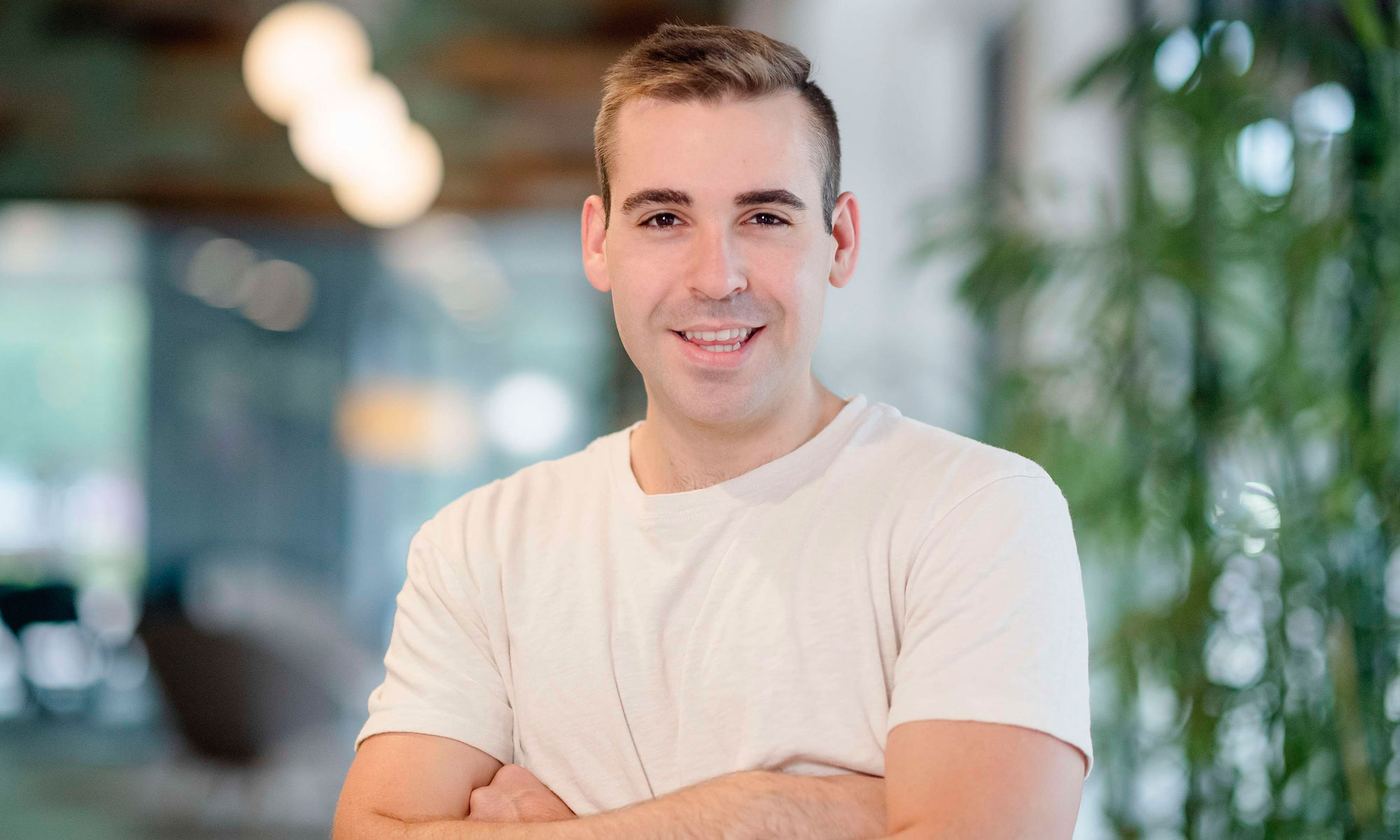Andriy Mulyar went from being an undergraduate student at the VCU College of Engineering to co-founding a pioneering company in just a few years. His success culminated in his recognition on Forbes’ 30 under 30 list for enterprise technology this year. His journey began when he was four years old when his family immigrated to the suburbs of Richmond from Ukraine.
During high school, he took advantage of a program at the VCU College of Engineering that allows high school students to intern in research labs, where he garnered a fascination with natural language processing. This experience with hands-on machine learning research ignited a passion within Mulyar, prompting his interest in AI technology as a career.
He decided to attend the VCU College of Engineering when he received the Wright Engineering Access Scholarship, a program that gives need- and merit-based awards to a wide range of students. For many Wright Scholars, this award means being able to focus on academics without having to take on part-time jobs.
“I wouldn't have been able to work on a lot of the research that I did without funding from that scholarship program,” Mulyar said. “It was integral in helping me get where I am today.”
At VCU, he pursued a dual degree in math and computer science while continuing his research in machine learning and natural language processing. Alongside Bridget McInnes, Ph.D., Mulyar gained experience studying and building the systems that came before the Chat GPT models we know today.
“It was really powerful to get the opportunity to experience those kinds of systems five years before they entered the mainstream,” Mulyar said. “Dr. McInnes is working in the field that is revolutionizing all of AI right now. She’s also incredibly supportive, helpful and one of the best faculty members at VCU.”
After graduating in 2020 at the height of the COVID-19 pandemic, Mulyar explored various paths before landing where he is now. The first opportunity led to a job at San Francisco-based startup, Rad AI, where he spent time cleaning data and gaining experience in the machine learning industry.
He worked at Rad AI for nearly a year, all the while fostering a desire to re-enter academia and continue his education. Motivated by his time and achievements at VCU and aided by the publications and research he conducted while there, Mulyar began a Ph.D. program in interpretable machine learning at New York University (NYU). However, his aspiration of making an impact in the world drew him back to industry needs.
Mulyar wanted to solve the problems he faced while working in machine learning; specifically, the challenge of working with large datasets in AI model training. He partnered with friend and former Rad AI colleague Brandon Duderstadt to co-found NOMIC, a company dedicated to making AI more accessible and explainable.
With this new journey underway and a lucrative round of initial funding, Mulyar dropped out of his Ph.D. program to pursue NOMIC and his vision for the future of AI.
NOMIC found quick success, launching an open-source AI model GPT4All, allowing anyone to access, train and run their own large language models.
NOMIC got its name from a philosophical word game based on the principle of democratic voting and the player’s ability to change the rules – perfectly encapsulating the company’s overarching mission. By democratizing data, NOMIC seeks to empower an individuals’ control of AI systems’ outputs, providing security and ethical use to burgeoning AI systems.
“People don't know how these systems are powered, and they're powered by data,” Mulyar said. “We're building the bridge that allows everyday humans the ability to control these AI systems, control what they output and make sure that they're doing things that are safe. We want to make sure that when a company releases an AI model, you know what that model is capable of doing, because you can see the data it was trained on.”
Mulyar emphasizes the importance of data transparency in the future of AI, teaching ordinary people how to understand and react to the data by these systems.
“In a few years, you're going to have thousands of chat GPTs running around the internet producing lots of fake content, fake images and fake videos,” Mulyar said. “Those models will be out there. We're building the only software in the world that can serve as an interface between humans and the tens of millions of potentially fake documents the other GPTs produce.”
With an innovative and successful company under his belt, Mulyar and his co-founder were named on this year’s Forbes’ 30 under 30 for enterprise technology.
Citing the strong foundational skills he learned at the VCU College of Engineering as a key factor in his achievements, Mulyar advises current engineering students to focus on the same. He urges current students to understand and have the ability to solve classic machine learning problems and develop a solid foundation in math and statistics.
“Large language models are hot right now, but they won’t be the systems and models that are hot in a few years, there’s going to be something else,” Mulyar said. “If you don't have the major principles and fundamental understanding of the field, you will not be able to adapt as quickly as everyone else.”
Mulyar’s path from undergrad to industry is one of academic grit and determination, exemplifying the significance of engineering education and its impact on the future of AI technology.
